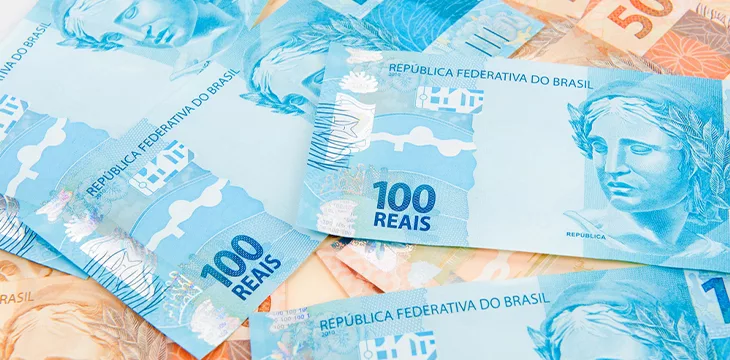|
Getting your Trinity Audio player ready...
|
Brazil’s upcoming central bank digital currency (CBDC) will be named DREX, the country’s central bank has revealed.
The CBDC has long been referred to as the digital real. However, as the Banco Central do Brasil’s CBDC coordinator Fabian Araújo announced this week, it has settled on DREX as an acronym that signifies the transition to a digital economy.
“DREX combines several elements of innovation: the D for digital, R for real, E for electronic, and X for transaction, taking a step further in this family of Pix that we created and was a success,” Araújo stated.
The bank added in an accompanying press release that the ‘x’ conveys “the idea of modernity and connection, and the use of distributed ledger technology (DLT).”
The bank also unveiled the logo of the upcoming CBDC, which it says depicts the transition from fiat to digital currencies. The choice of blue and green arrows signifies the “transaction completed” message.
“Alluding to a transaction, the two arrows that lean into the ‘D’ relate to the evolution of the real to the digital environment, reinforcing the attribute of agility, and the use of colors, in a transition from blue to light green, conveys the message of ‘transaction completed,'” Araujo explained.
Authorized Brazilian banks will mint the CBDC and avail it to customers on their digital wallets. The clients can then make instant transactions, all supported by blockchain technology.
In May, the central bank published a list of 14 entities authorized to participate in its DREX pilot, including major banks Itaú Unibanco and NuBank, as well as the local stock exchange B3 and global firms Visa (NASDAQ: V) and Microsoft (NASDAQ: MSFT).
Brazil targets financial inclusion with the new digital currency, the central bank says. The South American country has an internet penetration rate of 90%, according to official data, which potentially makes DREX available to most households.
Some other countries that have launched their CBDCs, including Nigeria and the Bahamas, have very low internet penetration, which denies access to low-income earners, the very people CBDC targets for financial inclusion.
The DREX backdoor allows the freezing of funds
The biggest concern with DREX is a backdoor that allows the central bank to freeze user funds. The built-in feature was discovered by Brazilian Web3 developer Pedro Magalhaes in July. In response, the central bank said that the country’s laws protect the ability to seize and freeze funds.
Digital asset recovery comes in handy in instances of theft, hacks, and scams. However, for years, it’s been believed to be a preserve of the permissioned blockchains. This myth has been debunked on the BSV blockchain, with the Blacklist Manager and Notary Toolset allowing BSV blockchain users with the required court authorizations to freeze assets on the network.
Digital asset recovery goes beyond hacks and scams. It allows the families of digital asset owners who have passed away to access the assets, prevent the total loss of assets in cases where the owner losses private keys, assist authorities in enforcing sanctions, and more.
The direct insight into the country’s money flow will also have its benefits, argues Senator Carlos Portinho, a lawmaker from Rio de Janeiro state. He believes it will introduce transparency and accountability into a country rife with corruption.
“It will allow us to track the real destination of the money. For example, if an amendment that we allocate for the construction of a hospital was effectively used for that or was lost within a health fund,” he stated.
To learn more about central bank digital currencies and some of the design decisions that need to be considered when creating and launching it, read nChain’s CBDC playbook.
Watch: Blockchain provides perfect foundation for CBDC

 03-01-2026
03-01-2026 




